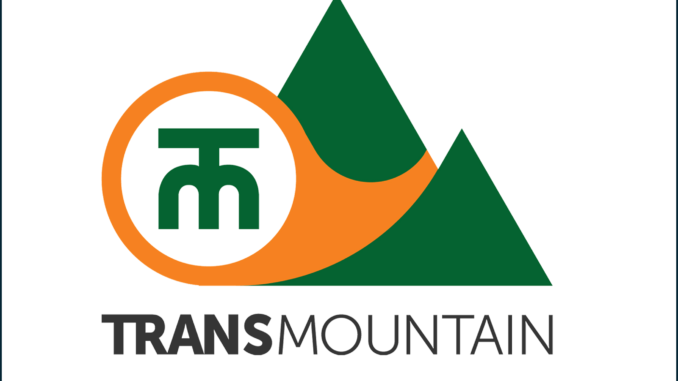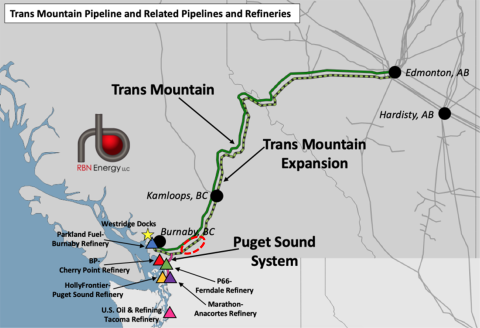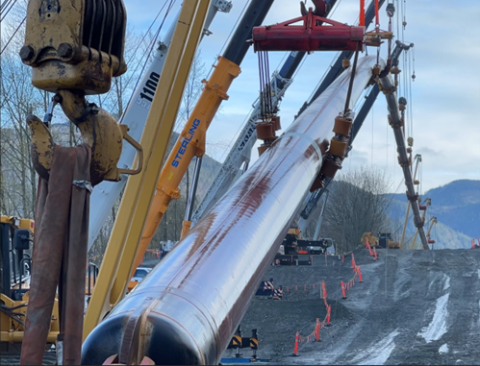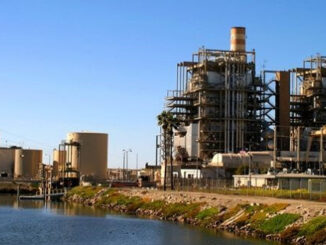
On April 3, Trans Mountain Corporation (TMC), the Canadian federally owned corporation building the Trans Mountain Pipeline expansion (TMX), announced that it had successfully completed on March 29 construction work in southern British Columbia (BC) on the one final remaining segment of pipeline (red dashed oval in map below).
Involving what is known as a pipeline pullback (picture below), an operation in which pre-connected pipeline segments are pulled through a pre-drilled tunnel and then connected at either end to previously completed pipeline, the successful conclusion of this work brings to an end a decade long construction odyssey that has been plagued by delays and massive cost overruns. This final segment of pipeline construction was delayed numerous times in the second half of 2023 to overcome technical issues with the drilling of the tunnel as well as the fulfillment from the regulator of a request to use smaller diameter pipeline in the tunnel owing to rock stability issues.
With the last segment of pipeline now in place, TMC has to complete additional clean up work at the site as well as obtain approvals from the regulator regarding permission to place the pipeline expansion into operation. To that end, TMC reported that commercial start-up of TMX will begin on May 1 and expects to provide full service for all contracted volumes.
Years behind schedule and grossly overbudget, TMX is a C$34 billion ($25 billion) 590 Mb/d capacity expansion (dashed green line in map above) alongside the original Trans Mountain pipeline (300 Mb/d, solid green line) that links Edmonton, AB to Canada’s west coast at Westridge and Burnaby, BC, as well as to refineries in the Pacific Northwest via the Puget Sound pipeline system. This will be an important direct conduit to overseas markets and the U.S. West Coast for the export of much larger volumes of Western Canadian crude oil from Canada’s West Coast, lessening the nation’s near exclusive reliance on crude exports to the U.S. and to international markets via re-exports from the Gulf Coast.





